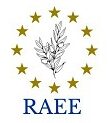Authors: Daniel R. Mekonnen, Galway and Mirjam van Reisen
Year: 2012
Summary
The European Union (EU) is a leading global actor in development cooperation, in charge of the coordination of the programmes of its 27 EU member states as well as providing direct financial support to developing countries. The EU development programme is subject to a dense and voluminous legal normative structure and the legitimacy of its actions are, more than is the case in sovereign states, rooted in the legal structure provided by its founding treaties and other supplementary instruments.
This paper aims to identify the scope of legality of support under the new legal framework, with a particular discussion on development cooperation between the EU and Eritrea. EU Eritrea diplomacy, trade and development cooperation are governed by essential treaty obligations. EU development cooperation in Eritrea is to be directed, among other things, by respect for human rights and democratic accountability, which are all severely lacking in Eritrea.
This article examines whether EU cooperation with Eritrea appears to be in contravention with EU treaty obligations to promote human rights, respect for the rule of law and democratic accountability.
